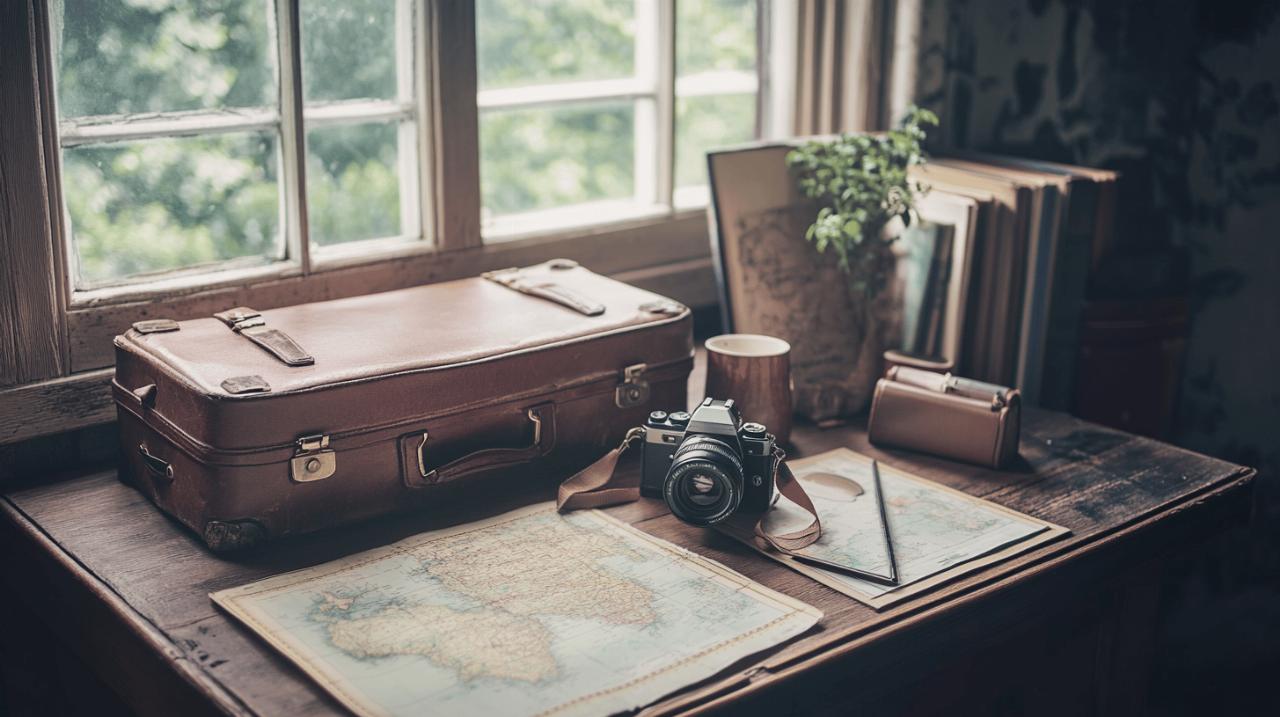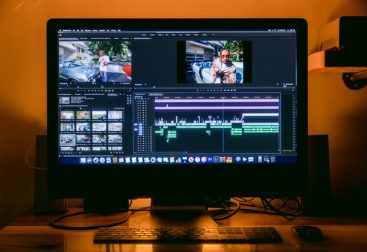Embarking on a journey can be thrilling, yet the planning phase often brings its own set of challenges. With some strategic preparation and organization, you can navigate through your travel arrangements with ease and confidence, making your upcoming adventure much more enjoyable from start to finish.
Early planning strategies
Getting a head start on your travel preparations can significantly reduce stress and allow you to focus more on the excitement of your upcoming trip rather than last-minute scrambling. Smart planning involves breaking down your tasks into manageable steps and giving yourself plenty of time to address each one.
Creating a timeline for pre-trip tasks
Starting your travel preparations early gives you breathing room to handle everything systematically. Begin by mapping out all necessary tasks on a calendar, working backward from your departure date. Include deadlines for booking accommodations, researching destinations, and applying for visas if needed. Many experienced travelers use digital tools from PreparaTuViaje to keep track of their planning timeline, setting reminders for each milestone to stay on track. Breaking down your preparations into weekly goals makes the process feel less overwhelming and ensures nothing gets overlooked.
Setting up travel alerts for deals and updates
Staying informed about travel opportunities can save you money and help you make adjustments as needed. Set up price alerts on flight comparison websites to be notified when fares drop for your destination. Subscribe to newsletters from airlines and booking platforms for exclusive deals. Travel forums and apps can provide real-time information about your destination, including weather alerts and local events. The digital age has made trip planning more accessible with tools that help monitor deals while you focus on other PreparaTuViaje aspects of your journey. Many travelers also recommend following social media accounts of tourism boards for insider tips and seasonal promotions.
Effective packing techniques
Preparing for your journey requires smart packing strategies that can significantly reduce travel stress. By adopting efficient packing methods, you'll not only save space but also enjoy a more organized travel experience. Taking time to plan your packing approach before departure contributes to a smoother trip overall.
Developing a minimalist approach to luggage
Embracing minimalism when packing creates numerous benefits for travelers. Start by creating a detailed packing list focusing only on essential items. Consider building a capsule wardrobe with versatile pieces that can be mixed and matched for different occasions. Rolling clothes rather than folding them maximizes space while reducing wrinkles. Remember that most destinations have laundry facilities or services, allowing you to pack fewer items. For medications and health essentials, bring only what you need in properly labeled containers. This streamlined approach not only makes your luggage lighter but also minimizes the stress of managing too many belongings during your journey.
Using packing cubes and compression bags
Packing cubes and compression bags are revolutionary tools for luggage organization. These travel accessories transform how you organize your belongings, creating distinct compartments for different categories of items. Use smaller cubes for accessories and larger ones for clothing. Compression bags are particularly useful for bulky items like jackets or sweaters, reducing their volume by removing excess air. Color-coding your packing cubes makes locating specific items effortless without unpacking everything. These organization systems also make repacking simpler throughout your trip. Many experienced travelers find that packing cubes not only maximize space but also keep clothing wrinkle-free. When selecting these organizational tools, look for durable materials that will withstand frequent use across multiple trips.
Travel document management
Managing your travel documents effectively is a cornerstone of stress-free travel preparation. When you organize your essential papers properly, you minimize the risk of delays and complications during your journey. Starting your document management well in advance can significantly reduce pre-trip anxiety.
Digital and physical organization systems work together to create a seamless travel experience. Many travelers find that implementing both strategies provides the best protection and accessibility for their important documents.
Digital backup systems for important papers
Creating digital backups of your travel documents provides a crucial safety net during your journey. Start by scanning or taking clear photos of your passport, visa, insurance details, and booking confirmations. Store these in a secure cloud service that you can access from any device even without internet connection.
Several travel-specific apps allow you to keep all your digital documents in one place. These apps often include additional features like offline access and password protection. Remember to encrypt sensitive documents for added security.
Email yourself copies of important documents as an extra precaution. This method ensures you can access them from any computer with internet access. Consider saving PDF versions that maintain formatting and are easy to print if needed.
Organizing physical documents for quick access
Invest in a dedicated travel wallet or document organizer with multiple compartments. This allows you to categorize your documents logically – keeping passports, boarding passes, hotel reservations, and insurance papers separate yet accessible.
Use clear plastic sleeves or folders within your organizer to protect documents from damage. Color-coding these sleeves makes locating specific documents faster during security checks or hotel check-ins.
Keep your most frequently needed documents in easily accessible pockets. Create a specific order based on when you'll need each document during your journey. Your passport and boarding pass should always be most accessible, followed by accommodation details.
Make multiple physical copies of essential documents and distribute them throughout your luggage. This redundancy helps if your main document holder is lost or stolen. Consider leaving a set with a trusted friend or family member at home who can send digital copies if needed.
Using these organization systems simplifies your travel experience and reduces stress. When your documents are properly managed, you gain peace of mind and can focus on enjoying your journey rather than worrying about paperwork.
Pre-departure home arrangements
Planning for your home's safety and maintenance while you're away is a crucial aspect of stress-free travel preparation. Taking time to arrange proper security measures and care for your home can give you peace of mind during your journey. Start your preparations early, ideally 1-2 weeks before departure, to avoid last-minute stress and ensure nothing is overlooked.
Setting up security measures while away
Protecting your home should be a top priority when preparing for travel. Install timer switches for lights to create the impression that someone is home. Consider smart home security systems that allow you to monitor your property remotely using your phone. Ask a trusted neighbor to keep an eye on your property and collect any packages. Make sure all windows and doors are securely locked before leaving. For valuable items, use a safe or consider storing them elsewhere. Avoid posting about your trip on social media until you return, as this can signal that your home is empty. If possible, arrange for someone to park in your driveway occasionally to maintain the appearance of occupancy.
Arranging for plant care and mail collection
Your plants and regular mail deliveries need attention while you're away. For plants, group them together to make watering easier for whoever is helping. Create clear instructions about each plant's watering needs and place them in visible locations. Self-watering systems or plant sitters are great options for longer trips. For mail management, ask a trusted friend or neighbor to collect your mail regularly to prevent buildup that signals an empty home. Alternatively, you can request a mail hold from your postal service. For packages, reschedule deliveries or have them sent to a secure location. If you subscribe to newspapers or magazines, pause these services during your absence. Creating a detailed checklist for the person handling these tasks can ensure nothing is missed while you enjoy your stress-free travel experience.
Transportation planning
Smart transportation planning forms a crucial part of stress-free travel preparation. Taking time to organize your transit options before departure can save you valuable time, money, and frustration during your journey. Let's explore key aspects of transportation planning that will enhance your travel experience and keep stress at bay.
Booking airport transfers ahead of time
Securing your airport transfers well in advance eliminates one of the most common travel stressors. Pre-booking ensures you'll have reliable transportation waiting for you upon arrival, removing the uncertainty of finding transportation in an unfamiliar place. Many travelers find that arranging transfers at least a week before departure provides peace of mind and often better rates. This approach also gives you time to research reputable services, compare prices, and select options that accommodate your luggage requirements and group size. Remember to save confirmation details in an easily accessible location, both digitally and in print, and set reminders for pickup times to ensure smooth transitions between flights and accommodations.
Researching local transportation options at your destination
Familiarizing yourself with local transportation systems at your destination is vital for stress-free travel. Start by researching public transit options like buses, trains, or subway systems, and download relevant apps that provide real-time schedules and route information. Consider investigating rideshare availability, taxi reliability, and rental services that might be needed during your stay. Many destinations offer tourist-specific transportation passes that can save money on multiple journeys – these are worth exploring before arrival. Creating a simple map of main transportation hubs relative to your accommodations and planned activities can prove invaluable, especially in unfamiliar cities. Taking time to understand payment methods for local transport (whether cash, card, or specific transit cards are needed) prevents delays and confusion during your travels.
Communication preparation
Effective communication planning is a vital aspect of stress-free travel. Taking time to address your communication needs before departure helps avoid unexpected issues and keeps you connected throughout your journey.
Notifying financial institutions about travel plans
Contacting your bank and credit card providers before traveling is essential to ensure uninterrupted access to your funds. Many financial institutions flag foreign transactions as potential fraud, which can lead to blocked cards at the most inconvenient times. Contact your bank at least a week before departure to register your travel dates and destinations. This simple step prevents payment disruptions while abroad and provides peace of mind when making purchases or withdrawing cash. Some banks offer notification options through their mobile apps or online banking platforms, making this process quick and straightforward. If traveling to multiple countries, be sure to include all destinations in your notification to avoid any payment complications.
Setting up international phone and data plans
Staying connected while traveling requires planning your mobile communication strategy in advance. Research international plans offered by your service provider, as these are typically more cost-effective than paying standard roaming rates. Many carriers offer temporary international packages that can be activated before your trip. Consider purchasing a protective phone case for your device to prevent damage during travel—options are available for various models including iPhone and Samsung Galaxy series. For tablet users, investing in a suitable case for your iPad or Galaxy Tab provides essential protection. If traveling to remote areas, research network coverage at your destination and consider alternatives like local SIM cards or portable WiFi devices. Download necessary communication apps before departure and test them to ensure they work properly. Remember to back up important contact information and store essential phone numbers in multiple locations for emergencies.
Health and safety preparations
Planning for your health and safety needs is a crucial aspect of stress-free travel preparation. By taking the time to address medical considerations before departure, you can enjoy your journey with greater peace of mind. Starting early with these preparations helps avoid last-minute stress and ensures you're properly protected against potential health challenges at your destination.
Creating a tailored travel medical kit
A well-stocked travel medical kit tailored to your specific needs can make a significant difference during your trip. Begin by packing all necessary prescription medications in their original containers, along with a copy of your prescriptions. Include basic first-aid supplies such as bandages, antiseptic wipes, and pain relievers. Consider adding destination-specific items based on your research – for example, altitude sickness medication for mountainous regions or extra hydration products for hot climates.
Nima Pharmacy offers comprehensive travel clinic services that can help you prepare the perfect medical kit. Their pharmacists can advise on essential health products for your specific destination and travel style. Don't forget travel-specific items like motion sickness remedies, insect repellent, and sunscreen. For those traveling with electronic devices, ensure your phone cases and tablet accessories are sturdy enough to protect your health-related apps and information. Smart packing strategies include using pill organizers and travel-sized containers to maximize space while keeping medications accessible.
Researching healthcare facilities at your destination
Before departure, invest time researching healthcare facilities available at your destination. Identify the nearest hospitals, clinics, and pharmacy locations that can provide medical services if needed. Save this information in both digital and physical formats for quick access during emergencies. Understanding payment methods accepted at these facilities is equally important – some may require cash payment or might not accept foreign insurance.
Verify whether your health insurance provides coverage abroad, and consider purchasing travel insurance with medical benefits for added protection. Many travelers find peace of mind by checking if their destination requires specific vaccinations. Nima Pharmacy's travel clinic offers various vaccinations including HPV, Typhoid, and Hepatitis, along with Covid-19 testing services, making them a valuable resource for pre-travel health preparations.
Research any health advisories for your destination and note emergency contact numbers. For travelers with ongoing health concerns, create a document with your medical history, allergies, and current medications in both English and the local language of your destination. This preparation ensures stress-free travel by minimizing health-related uncertainties and allowing you to focus on enjoying your journey.
Balancing itinerary planning
Planning a trip involves striking the perfect balance between seeing everything you want and actually enjoying your vacation. When organizing your travel schedule, start early to avoid last-minute pressure. Create comprehensive checklists for packing, essential tasks, and travel documents to stay organized. Efficient packing strategies can make a world of difference – consider a capsule wardrobe of mix-and-match items and roll your clothes instead of folding them to maximize space. Remember to pack travel essentials like a travel wallet, passport holder, and luggage tags to keep everything accessible yet secure.
Your health should remain a priority during travels. Visit a travel clinic for necessary vaccinations like HPV, Typhoid, and Hepatitis before departure. Don't forget to pack medications, a first-aid kit, and stay hydrated throughout your journey. Travel insurance is another crucial element that shouldn't be overlooked, providing peace of mind throughout your adventure. For international trips, inform your bank about travel plans to avoid card issues and check if your mobile provider offers coverage at your destination.
Building downtime into busy schedules
A common travel mistake is cramming too many activities into each day. Travel experts and clinical psychologists agree that not trying to fit too much into your itinerary is key to reducing stress. Instead of rushing from one attraction to another, deliberately schedule breaks throughout your day. These pauses allow you to absorb experiences, rest physically, and truly appreciate your surroundings.
Consider booking early morning flights to reduce airport congestion and plan longer layovers of at least three hours for international connections to eliminate rushing between gates. Practice stress management techniques like breathing exercises and meditation before and during your trip. Looking into alternative, less-crowded destinations or traveling during off-peak seasons can significantly enhance your experience. For those with accessibility needs, book passenger assistance in advance and consider traveling during off-peak hours. Carrying comfort items like snacks, water, and a neck pillow can make transportation more enjoyable, while airport lounges offer valuable amenities like showers and food during longer layovers.
Creating priority lists for must-see attractions
When faced with numerous attractions at your destination, creating a priority list becomes essential. Distinguish between must-see attractions and those you can visit if time permits. This approach prevents the disappointment of missing key sites while maintaining flexibility in your schedule. Research opening hours, ticket requirements, and estimated visit durations for each attraction to plan realistically.
To avoid crowds at popular destinations, look for tour packages with timed entry tickets. Many attractions offer early access options or evening visits with smaller crowds. Consider organizing your sightseeing geographically to minimize travel time between locations. Pack smart by bringing only essential travel accessories and organizing your luggage efficiently. Carry-on luggage reduces stress related to delays and lost baggage. Use travel-specific tools and smartphone apps to track flights and make proactive changes if necessary. Remember that flexibility is key – accept that plans may change due to weather, local conditions, or unexpected discoveries that might become highlights of your trip.
Handling travel disruptions
Travel disruptions are inevitable, but with proper preparation, you can minimize their impact on your journey. Being proactive about potential issues can make all the difference between a stressful experience and one you can navigate with ease. When preparing for your trip, consider potential challenges that might arise and how you might address them before they occur.
Planning ahead is consistently mentioned by travel experts as essential for reducing stress. This includes booking early morning flights which typically experience fewer delays and allowing longer layovers for international connections—at least three hours is recommended. Using airline apps to track your flights can help you stay informed about any changes and allow you to be proactive about adjusting your plans when necessary.
Creating backup plans for common travel issues
Smart travelers anticipate problems and develop contingency plans. Start by identifying potential disruptions specific to your destination, such as weather patterns, political situations, or common transportation issues. For luggage concerns, packing light with carry-on luggage significantly reduces stress related to delays and lost baggage.
Travel insurance is a crucial backup plan that shouldn't be overlooked. It provides financial protection against unexpected cancellations, medical emergencies, and lost belongings. Keep digital and physical copies of important documents like passports, insurance policies, and reservations. Store these in multiple secure locations for easy access if originals are lost.
Consider alternative routes and transportation options before your trip. Research local transportation at your destination, including public transit and ride-sharing services. Pack essential items in your carry-on, including medications, a change of clothes, comfort items like snacks, water, and a neck pillow, and any necessary electronics and chargers.
Maintaining a positive mindset during unexpected changes
Your attitude can transform how you experience travel disruptions. Clinical psychologists recommend relaxation techniques before and during your trip. Practice calm techniques like breathing exercises and meditation to manage stress when plans change. Building extra time into your itinerary creates buffers that reduce pressure when delays occur.
Focus on what you can control rather than dwelling on disruptions beyond your influence. Pack a capsule wardrobe to simplify clothing decisions and roll your clothes instead of folding to maximize space. Looking at disruptions as opportunities for new experiences can shift your perspective in meaningful ways.
Consider choosing less-crowded destinations or traveling during off-seasons to avoid the additional stress of crowds. Alternative destinations like Saba instead of St. Martin or Greenland instead of Iceland offer similar experiences with fewer tourists. For those requiring accessibility accommodations, planning becomes even more important—book passenger assistance in advance, travel during off-peak hours when possible, and know your rights regarding accessible travel.
Post-return planning
Coming back from a trip can be just as stressful as preparing to leave if you don't have a plan in place. Smart post-return planning not only helps you settle back into your routine more easily but also preserves the memories and experiences from your journey. With proper preparation, you can minimize the post-vacation blues and make your transition back to everyday life smooth and efficient.
Preparing for an easy transition back home
Before you even depart for your vacation, set up your home for a stress-free return. Pre-stock your refrigerator with frozen meals or non-perishable items for your first day back. Schedule mail delivery to resume the day after your return. Set a comfortable temperature on your programmable thermostat to activate a few hours before you arrive home. Consider asking a trusted neighbor to turn on some lights the evening of your return.
Pack a separate 'first day back' bag with essentials like work clothes, toiletries, and any medications you'll need immediately. This way, you won't have to unpack everything right away. Plan for a buffer day between your return and going back to work if possible—this gives you time to unpack, do laundry, grocery shop, and mentally readjust to your regular schedule. Check if any vaccinations you received for travel require follow-up doses at your local pharmacy location.
Make a list of pending tasks that will need your attention when you return, such as bill payments or appointments. Set calendar reminders for these tasks before you leave. Arrange for grocery delivery to arrive shortly after you get home to restock essentials without having to shop while jet-lagged. If you used travel accessories like luggage organizers during your trip, clean and store them properly for future use.
Organizing trip mementos and photos
Create a digital organization system for your travel photos within days of returning while memories are fresh. Sort photos by location or date, and back them up to cloud storage for safekeeping. Consider using a travel-specific photo app that organizes images by trip and location. For physical mementos like tickets and maps, designate a memory box or folder specifically for this trip.
Set aside time to create a digital travel journal with photos and notes about your experiences. This can be as simple as a document or as elaborate as a custom photo book. Label your photos with location details and brief descriptions to help you remember specific moments years later. If you collected physical souvenirs, find meaningful ways to display them rather than storing them away where they'll be forgotten.
Share selected photos with friends and family through a curated album rather than overwhelming them with hundreds of unedited images. Consider creating a travel wall in your home to display maps, photos, or small mementos from various trips. Organize digital receipts and travel documents in a dedicated folder on your computer for tax purposes or future reference. For those who enjoy crafting, create custom phone cases or tablet accessories featuring your favorite travel photos as practical keepsakes that remind you of your journey every day.










